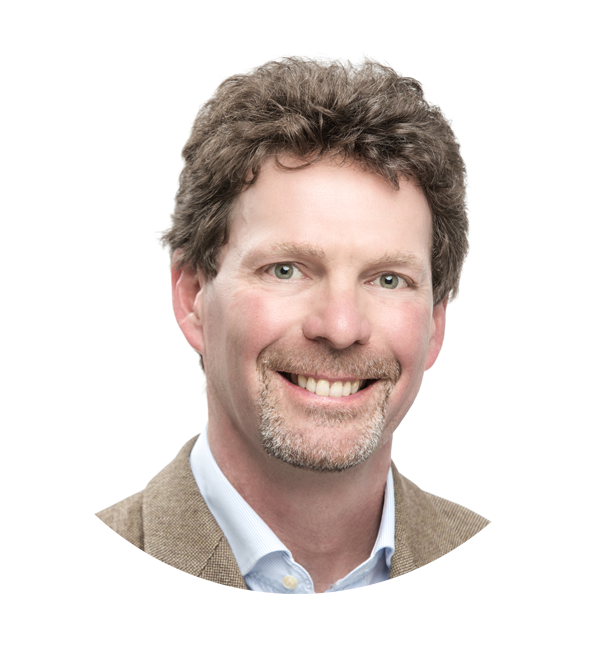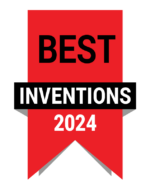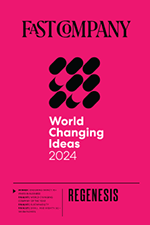 As a member of the REGENESIS corporate executive team and founding Managing Director of REGENESIS Europe, Jeremy Birnstingl, Vice President, Environmental Technology and an 18-year veteran with the company, has distinguished himself when it comes to providing expertise and innovation in the environmental remediation industry. So for those who have had the privilege to work with him, it should come as no surprise that he was recently awarded fellowship of the Royal Society of Chemistry (RSC), Great Britain’s esteemed professional organization that recognizes those who have demonstrated leadership and who have made impactful contributions in the field of chemical sciences. As a Society that was granted a Royal Charter by Queen Victoria in 1848, the RSC has grown from its original 77-member scientist-based roster to over 54,000 members throughout the world, and has built a reputation as an influential champion for the chemical sciences. RSC Fellowship reflects recognition by the membership and officers of the RSC of an attainment of high professional standing not just within chemistry but also to the wider community.
As a member of the REGENESIS corporate executive team and founding Managing Director of REGENESIS Europe, Jeremy Birnstingl, Vice President, Environmental Technology and an 18-year veteran with the company, has distinguished himself when it comes to providing expertise and innovation in the environmental remediation industry. So for those who have had the privilege to work with him, it should come as no surprise that he was recently awarded fellowship of the Royal Society of Chemistry (RSC), Great Britain’s esteemed professional organization that recognizes those who have demonstrated leadership and who have made impactful contributions in the field of chemical sciences. As a Society that was granted a Royal Charter by Queen Victoria in 1848, the RSC has grown from its original 77-member scientist-based roster to over 54,000 members throughout the world, and has built a reputation as an influential champion for the chemical sciences. RSC Fellowship reflects recognition by the membership and officers of the RSC of an attainment of high professional standing not just within chemistry but also to the wider community.
While there are numerous examples of Jeremy’s innovative and groundbreaking work, his recent focus on modeling and the development of PlumeForce™ software stands out as a hallmark accomplishment and continues to provide valuable support for the design of REGENESIS PlumeStop® projects. He shares, “This was a challenge, and a critical area for several reasons. We needed to understand the dynamic interplay of competitive sorption between both contaminants and non-target species, coupled with biodegradation, ZVI transformations and variable retardation in fluxing systems.” He adds, “We needed something that would work for complex and changing mixtures of species since this is the real-world reality. Existing models that considered individual compounds in unrealistic isolation were not sufficient – the compounds’ sorptive interactions in a mixture were quantitatively different, and the composition of these mixtures changes with progressive chromatographic separation within PlumeStop barriers. In the case of PFAS for example, complex mixtures of species are the norm.”
Jeremy joined REGENESIS in 2003, as the company’s Technical Manager, Europe, after spending four years with URS Corp. (Dames & Moore) where he was Principal Environmental Scientist in the London office. Prior to joining Dames & Moore, he served as a Remediation Technologies Manager with British Aerospace Royal Ordnance, in the company’s Environmental Services Group. To prepare for a career in the environmental remediation industry, he completed his B.Sc. in Environmental Biology at the University of Essex in 1989, and in 1997 earned his Ph.D. in Environmental Chemistry from the University of Lancaster. In his current role as Vice President of Environmental Technology for REGENESIS, he is responsible for new technology, conceptual development, and technology acquisition. He continues, “In addition, I also contribute to technology commercialization, including technical presentations and authorship of outward-facing literature, and operate as a senior technical resource on key remediation projects.” To help spur progress on increasing clean-up efficiency through capturing the potential synergy between remedial approaches, Jeremy co-lead the Combined Remedies Initiative with USEPA and NGWA for promotion and furtherance of remediation technology integration and adaptive management. He is an accomplished speaker and has presented at numerous national and international seminars and university lectures, including more than 100 international conference presentations in his technical area. His list of accomplishments includes three patents: “Treatment of Aquifer Matrix Back Diffusion,” “Method of Increasing Hydrophobicity of Native Water-Bearing Zones,” and “Colloidal Agents for Aquifer and Metals Remediation,” and he has authored articles for various trade and scientific publications.
As the first formal REGENESIS employee outside of the US, Jeremy was initially responsible for establishing the REGENESIS line of in-situ remediation products within Europe. As his brief evolved, he was later tasked as Managing Director (2004 – 2013) with establishing a European presence for REGENESIS and building the European team. Since he joined in 2003, his contributions have included the introduction and commercial use of ten new aquifer restoration products that are now accepted and approved by regulators throughout Europe. At the time, each was not only a new product but also a new product sector and/or material innovation and required market education of the approach as a preliminary step to its confident and successful adoption for a project. The products address aerobic and anaerobic bioremediation of fuels and chlorinated solvents, immobilization of toxic metals, in-situ chemical oxidation or organic contaminants, vapor protection, enhanced contaminant recovery, and more recently include the injectable activated carbon products for plume migration management. He comments, “I’m proud to say that to date, REGENESIS products have been applied on more than 3,000 field projects across Europe, from Sweden to Portugal and Ireland to Poland. In fact for the past three years, the European team’s average has been more than one new project starting every working day.”
Residing in Bath, England with his wife, Jeremy finds time away from his work to enjoy music – whether in the audience or as a performer. He shares, “It can be challenging to keep hobbies alive in the face of professional and domestic responsibilities. My outside interests have been many and varied, but out of necessity, I’ve had to choose which hobbies to jealously guard and maintain, and which to let go. The main survivor has been music, and when possible, performing. I’ve played instruments since I was five years old, but only really picked up the guitar – my #1 instrument – when I was fourteen. I quickly found it to be social currency. I currently play each week with a group in a local arts center.” He continues, “One of the time-casualties has been theatre. My first public performance was age 5 or 6 when I played a Mexican shaman in a school play. Later, I took on singing parts. Solo or duets in front of an audience helped me overcome the challenge of performance nerves. I grew to love the stage and performing, but the time demands and social commitments were too great and I had to let it drop. But not quite – arguably it has turned out to be something that may have found greater expression as a presenter and public speaker in front of audiences in more countries around the world than I would ever have achieved in theatre.”
As he approaches 20 years with REGENESIS, Jeremy reflects on what it is that has kept him with the company for almost two decades, in an industry that is constantly evolving. He concludes, “I’ve been part of the REGENESIS family now for eighteen years. My roles have evolved and changed as the company has grown and deep friendships have been forged. I’m sure it’s clear from this that there’s much I enjoy – there is no one thing. But that said, I will offer one observation that was key to REGENESIS capturing my interest at the beginning and still fuels my enthusiasm now. REGENESIS is fertile ground for good ideas. Product innovation, technical insight, process, managerial practices – it doesn’t matter. Ideas are shared, explored, critiqued, and if timely and of sufficient merit, developed and implemented. This is easy to take for granted or perhaps to overlook but it is core to the REGENESIS culture, like water to a fish.”
REGENESIS proudly congratulates Jeremy Birnstingl for his induction into the Royal Society of Chemistry, and looks forward to his continued leadership and commitment to excellence in providing successful remediation outcomes for REGENESIS and its clients.

 Americas
Americas Europe
Europe Français
Français Deutsch
Deutsch Italiano
Italiano Español
Español



